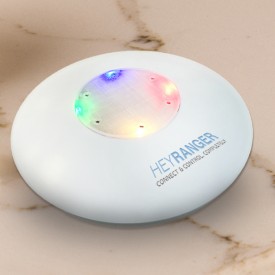WiFiRanger Partners with Yak Power on AI

WiFiRanger has announced its first “Hey Ranger Ready” alignment with Yak Power’s new switching system. The arrangement allows a drop-in module to the versatile Eight Circuit Yak Power Digital Switching System that makes it controllable via secure and private voice commands issued by the new WiFiRanger AI Universal Assistant.
“The Yak Power systems unique and flexible wireless architecture allowed us to quickly develop ‘skills’ to engage all the switching components from our AI Universal Assistant, making its already simple use even more convenient,” said Kelly Hogan, CEO of WiFiRanger.
The “Hey Ranger Ready” initiative is an open based way of registering and sharing control protocols of new and legacy RV systems allowing owners of WiFiRanger AI Universal Assistant to summon control and status of their RV via voice.
WiFiRanger began building a skills database and aligning the control mechanisms based around IP, Bluetooth, or proprietary hardware protocols, and making those skills available to WiFiRanger owners for installation upon their AI Universal Assistants.
For proprietary systems already in the field, WiFiRanger began building hardware bridges that allow connection to the AI system via a custom hardware device that interprets and encodes the legacy information, passing it to and from the AI system for processing.
This in turn allows OEs to request vendors to provide their control protocols to build skills that sync with the WiFiRanger, or, use one of the hardware bridges that WiFiRanger has engineered to run each proprietary system solution.
“As an example of the power of our initiative, we built a hardware bridge to the legendary SeeLevel II tank management system, allowing any owner of these systems to summon tank status by simply asking,” Hogan said. “What a great way to give back to the RV industry than to voice enable 20 years of legacy equipment. We will work with any systems provider in helping them develop skills for their systems, and can also assist in designing hardware bridges to the proprietary hardware.”



